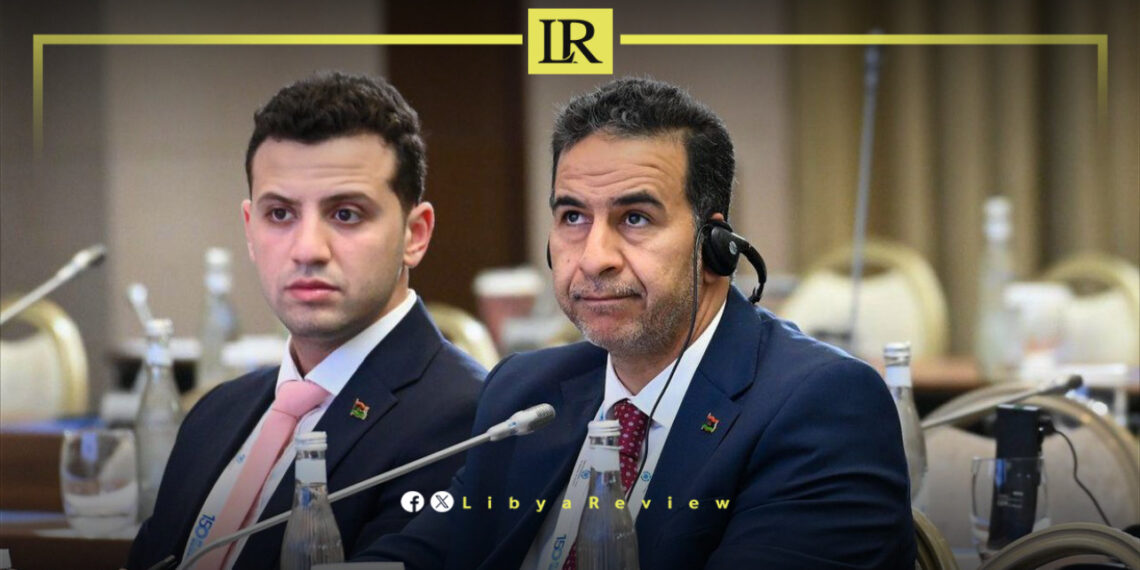Fawzi Al-Nuwairi, the First Deputy Speaker of the Libyan House of Representatives, represented the Arab Group at a closed session of the Permanent Committee for United Nations Affairs held in Tashkent, Uzbekistan.
Abdullah Blehaq, spokesperson for the House of Representatives, stated in a press release on Wednesday that the session focused on the role of parliaments in holding governments accountable for involving women in foreign ministries and their international representation.
During the session, Al-Nuwairi delivered a speech underscoring Libya’s commitment to this issue. He highlighted that Libya has actively ensured female representation within its diplomatic corps, with many Libyan women holding prominent positions in international representation, reflecting Libya’s dedication to empowering women and enhancing their role in foreign policy.
Blehaq also noted that the committee conducted a field visit to the United Nations offices in Tashkent to observe the operations of the UN bodies there and their role in supporting nations, including technical support and advisory services for implementing UN agendas.
The 150th General Assembly of the Inter-Parliamentary Union continues its proceedings in Tashkent for the second day, with parliamentary delegations from various countries around the world in attendance.
Libya has been in chaos since a NATO-backed uprising toppled longtime leader Muammar Gaddafi in 2011. The county has for years been split between rival administrations.
Libya’s economy, heavily reliant on oil, has suffered due to the ongoing conflict. The instability has led to fluctuations in oil production and prices, impacting the global oil market and Libya’s economy.
The conflict has led to a significant humanitarian crisis in Libya, with thousands of people killed, and many more displaced. Migrants and refugees using Libya as a transit point to Europe have also faced dire conditions.
The planned elections for December 2021 were delayed due to disagreements over election laws and the eligibility of certain candidates. This delay has raised concerns about the feasibility of a peaceful political transition.
Despite the ceasefire, security remains a significant concern with sporadic fighting and the presence of mercenaries and foreign fighters. The unification of the military and the removal of foreign forces are crucial challenges.


